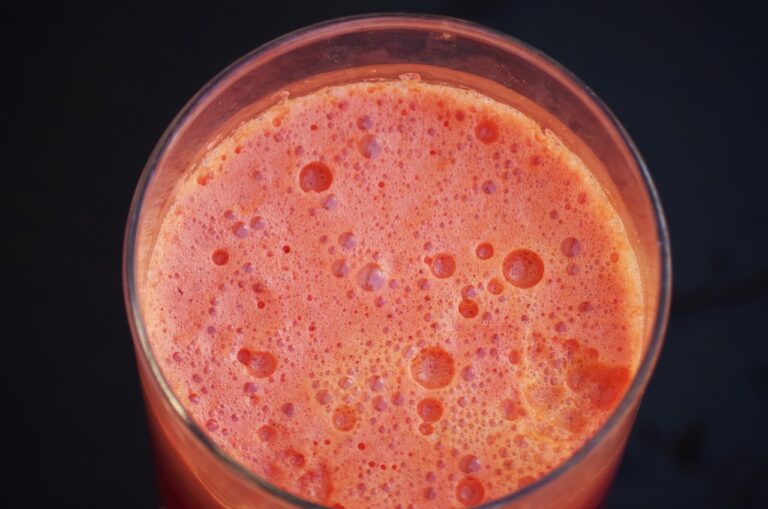Nephrology Empowerment: Helping Kidney Patients Take Control of Their Health: Sky 247, Diamondexch9.com register, Tigerexch
sky 247, diamondexch9.com register, tigerexch: Rheumatology patients often face chronic pain and inflammation, which can significantly impact their quality of life. While traditional medications and therapies are commonly used to manage these conditions, many patients are seeking alternative treatment options to complement or even replace conventional approaches. In this article, we will explore some alternative therapies that rheumatology patients may find beneficial in managing their symptoms and improving their overall well-being.
Acupuncture: A Traditional Approach to Pain Management
Acupuncture is a traditional Chinese medicine practice that involves inserting thin needles into specific points on the body to alleviate pain and promote healing. For rheumatology patients, acupuncture can help reduce inflammation, improve blood flow, and release endorphins, the body’s natural painkillers. Many patients find that acupuncture sessions provide significant pain relief and can help them reduce their reliance on pain medications.
Chiropractic Care: Aligning the Body for Better Function
Chiropractic care focuses on aligning the musculoskeletal system to improve overall health and function. Chiropractors use spinal adjustments, manipulation techniques, and other therapies to reduce pain and inflammation in patients with rheumatologic conditions. By realigning the spine and joints, chiropractic care can help improve mobility, reduce stiffness, and enhance the body’s natural healing processes.
Massage Therapy: Relaxing Muscles and Reducing Tension
Massage therapy is a popular alternative therapy for rheumatology patients looking to reduce pain, stiffness, and muscle tension. Therapeutic massage techniques can help improve circulation, reduce inflammation, and release tight muscles, providing relief from arthritis symptoms. Regular massage sessions can also help patients manage stress, improve sleep quality, and enhance overall well-being.
Mind-Body Practices: Harnessing the Power of the Mind
Mind-body practices, such as yoga, tai chi, and meditation, focus on the connection between the mind and body to promote healing and wellness. These practices can help rheumatology patients improve their flexibility, strength, and mental focus, while also reducing stress and anxiety. By incorporating mind-body techniques into their daily routine, patients can better manage their symptoms and improve their overall quality of life.
Dietary Supplements: Nourishing the Body from Within
Dietary supplements, such as omega-3 fatty acids, turmeric, and glucosamine, are commonly used by rheumatology patients to support joint health and reduce inflammation. These natural supplements can help improve mobility, reduce pain, and protect against further damage to the joints. While dietary supplements should not replace traditional medications, they can be a valuable addition to a comprehensive treatment plan for rheumatology patients.
Hydrotherapy: Soothing Joints with Water Therapy
Hydrotherapy involves using water for therapeutic purposes to help relieve pain and improve mobility in rheumatology patients. Water-based exercises, such as swimming and water aerobics, can help reduce joint stiffness, strengthen muscles, and increase range of motion. The buoyancy of water also reduces the impact on joints, making hydrotherapy a safe and effective option for patients with arthritis and other rheumatologic conditions.
FAQs
Q: Are alternative therapies safe for rheumatology patients?
A: While alternative therapies can be beneficial for managing rheumatologic conditions, it is important for patients to consult with their healthcare provider before starting any new treatment. Some alternative therapies may interact with existing medications or exacerbate certain symptoms, so it is essential to discuss all treatment options with a qualified healthcare professional.
Q: Can alternative therapies cure rheumatologic conditions?
A: While alternative therapies can help manage symptoms and improve quality of life for rheumatology patients, they are not a cure for these chronic conditions. It is essential for patients to work with their healthcare team to develop a comprehensive treatment plan that may include a combination of traditional medications, therapies, and alternative approaches to manage their condition effectively.
Q: How often should I engage in alternative therapies for optimal results?
A: The frequency of alternative therapy sessions can vary depending on the individual’s condition, goals, and response to treatment. It is best to work with a qualified practitioner to develop a personalized treatment plan that takes into account your unique needs and preferences. Consistency and commitment to the treatment plan are key to experiencing the maximum benefits of alternative therapies.
In conclusion, exploring alternative therapies can offer rheumatology patients additional options for managing their symptoms and improving their overall well-being. By incorporating practices such as acupuncture, chiropractic care, massage therapy, mind-body techniques, dietary supplements, and hydrotherapy into their treatment plan, patients can enhance their quality of life and find relief from the challenges of living with a chronic rheumatologic condition. As always, it is essential for patients to work closely with their healthcare team to determine the most effective and safe treatment options for their specific needs.







